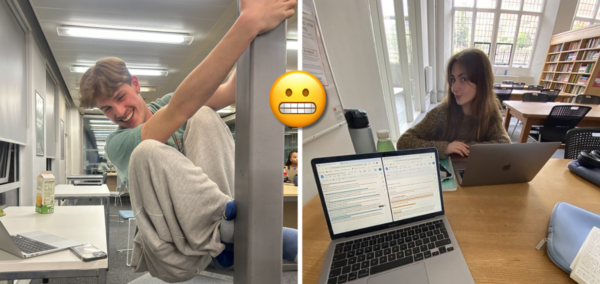
Swansea University graduate applied for 647 jobs after university before finding employment
Caitlin Morgan felt ‘completely demotivated’ after 18 month job search after graduating
A Swansea University graduate applied for 647 jobs after university before finding one, leaving her questioning whether her degree was worth it.
Caitlin Morgan applied and was rejected from over 600 jobs before finding a position in London after 18 months of searching.
The economics and finance graduate revealed that she felt “completely unmotivated” and went through some “pretty sad phases” as a result of receiving no feedback and immediate rejections from employers.
The 23-year-old who also completed a year in industry told the BBC: “I put so much effort into my applications and so much time that when I didn’t hear back from them, I just wondered what made my application not worthy of feedback?”

via Google Maps
After the 18 month job search, Caitlin added: “I worked hard for my degree and had experience so was thinking, was it worth it?”
150 of Caitlin’s applications were rejected without feedback, and an additional 271 applications which she never heard back from. These constant rejections prompted her to created a spreadsheet of these dismissals which date back to September 2023.
After the long road of applications and rejection, Caitlin has been offered a degree level position to become a trainee accountant, and will relocate from Tintern, Monmouthshire to London in September.
In Caitlin’s field of work for finance roles, it was reported that an average of 188 applications were submitted for each role that became available.
Rising competition for graduate role vacancies has soared to “record high” applications according to the Institute of Student Employers (ISE). It has been reported that there has been an influx of 1.2 million job applications for 17,000 graduate vacancies in the last year alone.
The ISE also spoke to 145 companies in which employed 40,000 graduates and revealed that job applications were at its highest for 30 years, equating to a 50 per cent increase from 2023.
Caitlin speculated that the rising uses of AI tools by companies as part of a filtering process of applications could be somewhat responsible for the reason her plethora of applications were falling flat.
Recruitment expert James Fortnam explained: “Companies will use software tools to match somebody’s CV to the job.”
He added that this is the case “because they won’t have had huge volumes of experience, typically a lot of graduates sometimes appear lower on that matching capacity.”
In response to the increasing use of AI tools by employers, Caitlin said: “I was just getting straight rejections, whereas after adjusting it [CV], sometime you’d be invited to an assessment after you’ve applied.
“Had I have known that from the get go, that would’ve helped me with my other applications.”
According to the BBC, the group which represents Welsh universities believes that the demand and want for graduate level skillsets will grow in interest by 2035, despite Wales having the lowest proportion of graduates within the UK workforce.
A Universities Wales spokesperson said: “While we recognise the today’s job market presents real challenges for many people, research shows that a degree continues to boost lifetime earnings, career prospects and personal development,
“University offers a transformative experience that not only benefits individuals buts also strengthens our communities and economy.”
On behalf of Robert Half Recruitment, James Fortnam said: “Getting your first job post-education is the biggest step because you might not necessarily have a lot of experience.
“I think there’s a lot of noise with employers with a sheer number of applicants for an opportunity, so it’s really difficult for clients to whittle that down.”
Feature image via Google Maps and Unsplash





















